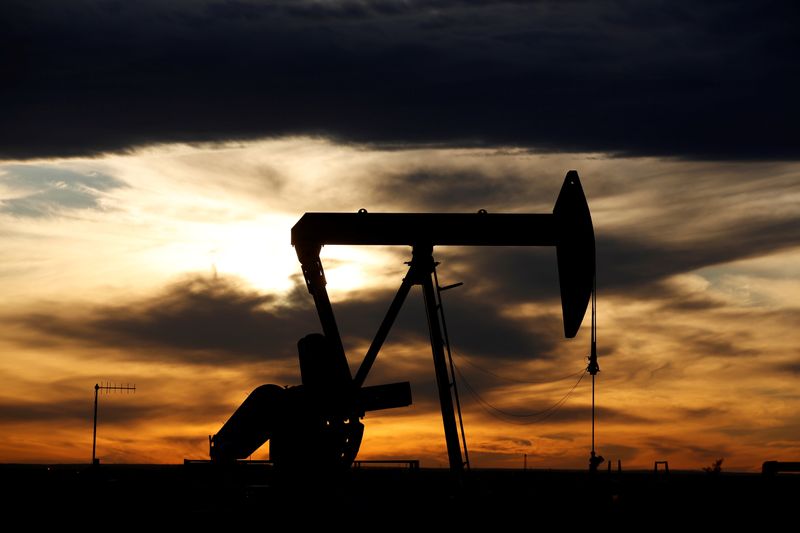By Aaron Sheldrick
TOKYO (Reuters) - Oil turned lower on Wednesday after President Donald Trump claimed victory in a tight U.S. election, despite millions of votes still to be counted and a final result not expected for days.
West Texas Intermediate (CLc1) was down 15 cents, or 0.4%, at $37.51 a barrel by 0755 GMT, after choppy trade in positive territory for most of the Asian session. Brent crude (LCOc1) was off by 8 cents, or 0.2%, at $39.63, after trading between $39.85 and $40.80.
Trump falsely claimed to have won after his Democratic challenger, Joe Biden, said he was confident of winning a contest that will not be resolved until a handful of states finish vote counts in the next hours or days.
Oil prices slumped by more than 10% last week as global coronavirus cases soared and more curbs on movement hit demand prospects but they have nearly recouped those losses in three days of gains this week in the election run-up.
"There's a lot of volatility across the board," said Jonathan Barratt, chief investment officer at Probis Group in Sydney. Oil is "running on a bit of thin air up here and you will find that sense will prevail and prices will come back to the median. We are still in a range."
Equity markets swung around, while bonds were trading higher as vote counting progressed and showed the election was closer than polls had forecast, with the outcome possibly still in doubt for days.
Supporting prices earlier, U.S. crude oil stockpiles fell sharply last week while gasoline inventories rose, data from industry group the American Petroleum Institute (API) showed on Tuesday.
Crude stockpiles fell by 8 million barrels to about 487 million, the API said.
That contrasted with analysts' expectations in a Reuters poll for an increase of 890,000 barrels.
More lockdowns could put a cap on oil price gains as Italy, Norway and Hungary tightened virus curbs, following the UK, France and other countries.
"Politics aside, there are European demand uncertainties, given the broader extensions of lockdowns," said Virendra Chauhan, an oil analyst at Energy Aspects in Singapore, but added that Asian demand for oil and its products is returning.
Supporting prices, OPEC member Algeria backed the deferral of a planned increase in OPEC+ oil output from January and Russia's energy minister raised the prospect with the country's oil producers.
The Organization of the Petroleum Exporting Countries (OPEC)and allies led by Russia, a grouping known as OPEC+, are set toreduce cuts of 7.7 million barrels per day (bpd) by around 2million bpd from January.
Sources said OPEC and Russia were considering bigger production cuts next year to support prices.

GRAPHIC: Global oil supply and demand, https://fingfx.thomsonreuters.com/gfx/ce/oakpenrxzvr/EIA%20oil%20supply%20and%20demand.PNG